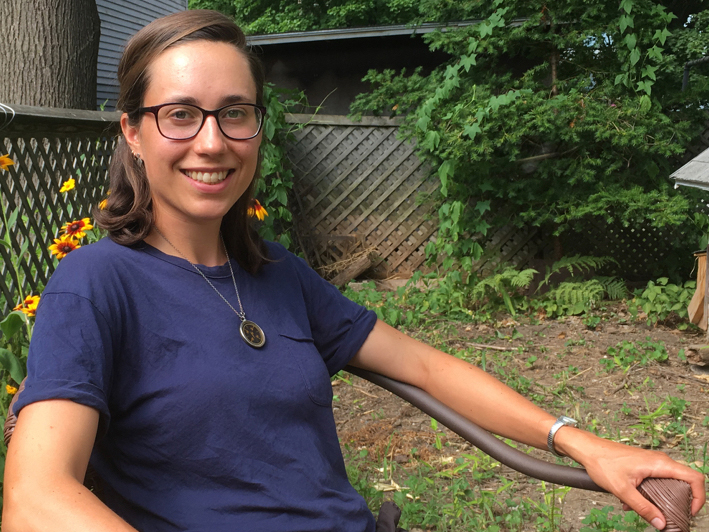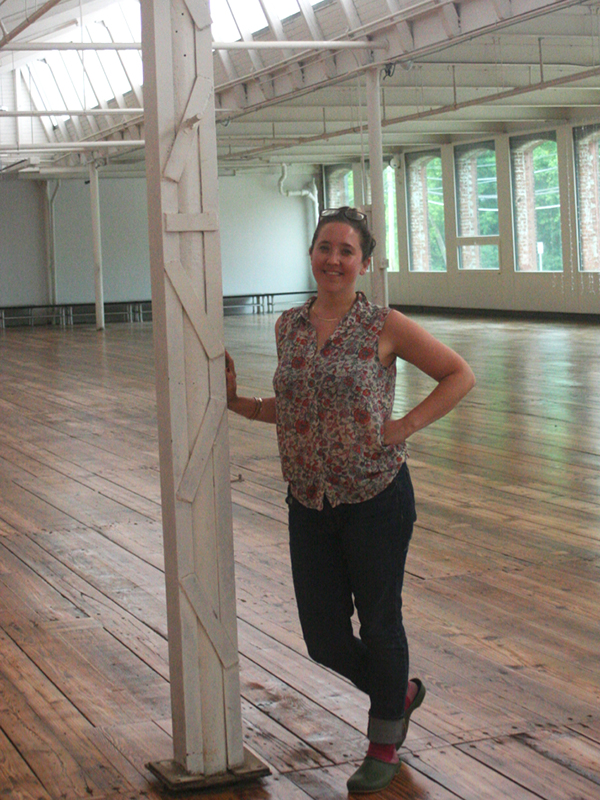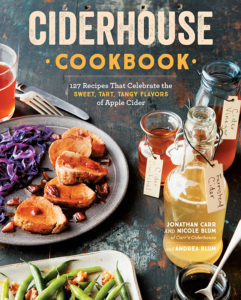Podcast (plenty): Play in new window | Download
Subscribe: RSS
Welcome to episode number 12 of Plenty, in which we spend time with a number of folks involved in HEIRLOOM by Design at Greylock WORKS in North Adams, Massachusetts—an inaugural celebration of the handmade, hand-grown, and house crafted.

We speak first with Sophie Grant, program director of HEIRLOOM by design. Her job is to coordinate vendors, entertainment, presenters, and more to create a truly memorable local food jubilee.
One event sponsor and presenter that’s a natural fit at HEIRLOOM by design, is Storey Publishing, based on the campus of MASS MoCA in North Adams, Mass. We spoke with Debra Balmuth, publisher at Storey, on site at GreylockWORKS, after she toured the space during the planning stages.
Storey, now an imprint of Workman Publishing, has been a familiar installment on the bookshelves of foodies, farmers, crafters, and do-it-yourselfers for just about a generation.
Although Greylock WORKS is the new kid in town when it comes to the local food movement, the overlapping missions, plus the local history represented by the former Cariddi Mill, created a timely synthesis of the two entities.

Of course, in a space this big, there’s room for LOTS of different delegates of the local and hand crafted scene. Sophie Grant again…
Lucy Rawlins is one of a new generation of farmers—she and her boyfriend are definitely the genuine article, in spite of, or maybe because of, an evolved perspective on the back to the land movement.
Participating in HEIRLOOM made sense, given the support that Greylock WORKS has pledged both to local agriculture organizations and local artists.
One of the points that rawlins wants to drive home is that the future of farming likely lies in the rediscovery of techniques that were the tried and true conventions for millenia.
Storey publisher Debrah Balmuth has seen traditional arts trend in and trend out over the years, which gives her a unique vantage point when it comes to the current renaissance in artisanal quality.
And that self expression is definitely en vogue from the Berkshires to Brooklyn and way way beyond.
While the hip factor helps fuel the image of local food, at the end of the day, sustainability also means creating a viable space for farming in the local economy.

Sometimes economic sustainability can mean a brisk business in traditional market gardening and sometimes that can mean taking the leap to offering customers a value added product that taps into a different area of consumer appeal. Nicole Blum operates Carr’s Ciderhouse with her husband Jonathan Carr, in Hadley, Massachusetts. Their experience as market gardeners evolved into a highly specialized (and delicious) product line based on hard cider.
For Jonathan and Nicole, how they produce their wares, and the environmental impact it has, is well-aligned with the agricultural ethics of many of their cohorts.
Lucy Rawlins of the Williamstown Farmers Market shares Blum’s holistic perspective on human effects of food production.
The appreciation of slow food, and respect for the basics will likely be instrumental in the quest to mitigate the accelerating effects of climate change.
Blum explained some of what Carr’s Ciderhouse will have to offer at HEIRLOOM. And despite the fact that she and her husband would obviously like to earn some coin from the event, their demonstration would seem to be the antithesis of profiteering—they will be teaching attendees to make a product at home that Carr’s sells bottled and ready to use. A willingness to share knowledge seems to be a defining characteristic of sustainability advocates, even if it means they don’t squeeze every nickel out of an opportunity.
Debra Balmuth of Storey Publishing described her company’s contribution to HEIRLOOM, including some of the demonstrations designed to educate event-goers about some of the highly accessible techniques of self-reliance that have been the stock in trade for the North Adams bookbuilder for decades.
Ultimately, a strong and health local food system requires the input of many players in addition to great food hub like Greylock WORKS. Rawlins, in describing the uncertainties of climate change and environmental degradation, says hedging our bets by supporting a variety of producer is the smart way to go.
Sophie Grant, of Greylock WORKS, agrees, and notes that while massive, immediate change would be great, the combined choices of individual consumers really does make a difference.
Well, I hope you can make it to HEIRLOOM, at GreylockWORKS in North Adams, Mass., July 28. Remember, we take the notes for you, so if you’re looking for more information about any of the organizations discussed, be sure to visit this episode at greylockglass.com.
I’ve been your host, Jason Velazquez, and I thank you for tuning in. Until next time, I hope you rustle up plenty of real food for yourself and your people. Take care.








